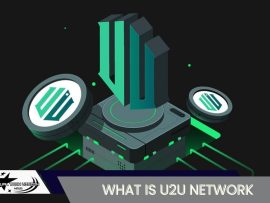The World Economic Forum recently published a report titled “Unlocking Technology for the Global Goals.” It revealed that harnessing the power of technology could potentially address around 70% of the world’s environmental and social issues. With the rapid advancement of technology, the next decade is expected to bring transformative changes to various sectors, including health, clean energy, industry, innovation, and infrastructure.
Contents
What is the Fourth Industrial Revolution?
The Fourth Industrial Revolution, also known as 4IR, combines advancements in artificial intelligence, robotics, the Internet of Things, 3D printing, genetic engineering, quantum computing, medical breakthroughs, and other technologies. This collective force is behind many products and services that have become essential in our modern lives, such as GPS systems, voice-activated virtual assistants, personalized recommendations, and facial recognition.
The World Economic Forum, in collaboration with Price Waterhouse Cooper (PwC), has produced a 48-page document that examines how the Fourth Industrial Revolution is paving the way for transformative changes in our lives, while also disrupting various business sectors at an unprecedented pace, and rapidly changing consumer expectations.
1. Artificial Intelligence
Artificial Intelligence (AI) refers to computers that can mimic human thinking, recognizing complex patterns, processing information, and drawing conclusions. AI is already making significant contributions to medicine, aiding in disease diagnosis and the creation of new medicines. It has also shown promise in identifying criminals through facial recognition and has revolutionized the development of driverless cars.
While AI continues to advance and impact various aspects of our lives, there are ethical, legal, moral, and religious implications to consider. Concerns about job displacement and the machine’s inability to replicate human creativity and collaboration through teamwork are also important considerations.
2. Blockchain
Blockchain is a distributed ledger technology that uses software to securely and anonymously record and verify transactions. Although most commonly associated with digital currencies like Bitcoin, blockchain has diverse applications. It can make supply chains traceable, secure medical data, and combat voter fraud.
3. The Internet of Things and 5G
The Internet of Things (IoT) refers to the networking of objects equipped with sensors, software, and internet connectivity, enabling them to collect and exchange data. With the advent of 5G technology and networks, IoT devices can communicate faster and more efficiently. This connectivity allows for smart solutions, such as a fridge automatically adding items to a shopping list or a Fitbit monitoring a user’s heart rate. Industries also benefit from IoT, as businesses can collect valuable customer data and make informed decisions based on product usage.
4. Big Data and Quantum Computing
Big data plays a significant role in all projects identified by the World Economic Forum report. Additionally, the development of commercial quantum computing technologies is set to revolutionize computing. Quantum computing’s capacity to perform billions of calculations in an instant will transform the way we process information.
5. Robotics
Robotics involves the design, manufacture, and use of machines that can assist humans or operate autonomously. These robots are employed in various fields, including manufacturing, health and safety, and customer service. While they have taken over repetitive tasks and autonomous machines can perform household chores, the vision of every home having a robot housekeeper is yet to be fully realized.
6. Augmented and Virtual Reality
Augmented reality and virtual reality technologies create immersive 3D computer simulations that overlay the real-world environment or work with the viewer’s surroundings. These technologies have applications in entertainment, training, and even medical procedures.
These are just six of the ten disruptive technologies shaping our future. The others include renewable energy, nanotechnology, biotechnology, and 3D printing. Each of these technologies has the potential to drive significant change in their respective fields, revolutionizing the way we live, work, and interact.
FAQs
Q. How will these disruptive technologies change our lives?
A. These technologies are set to revolutionize various industries, improve efficiency, enhance decision-making processes, and drive innovation. They have the potential to create new job opportunities, improve healthcare outcomes, transform transportation systems, and revolutionize entertainment experiences, among many other possibilities.
Q. What are the ethical implications of AI?
A. The rapid advancements in AI raise ethical concerns related to job displacement, privacy, algorithm biases, and the potential for AI to surpass human intelligence. These challenges require careful consideration and the development of ethical frameworks to guide the responsible use of AI.
Q. How can blockchain benefit industries other than finance?
A. Blockchain technology offers greater transparency, security, and efficiency. It can be utilized in supply chain management, healthcare data security, intellectual property rights, and even voting systems, among many other applications.
Q. How will the Internet of Things impact businesses and consumers?
A. The Internet of Things enables businesses to collect valuable data about customer behavior and product usage, informing marketing strategies and improving customer experiences. For consumers, IoT offers greater convenience through smart home devices and personalized services.
Conclusion
The future holds immense potential for disruptive technologies to shape our lives in unimaginable ways. From artificial intelligence and blockchain to the Internet of Things and robotics, these innovations have the power to revolutionize industries, drive economic growth, and enhance our overall well-being. Embracing these technologies and addressing associated challenges will be crucial in harnessing their full potential and ensuring a better future for all.
Visit Virtual Tech Vision to stay updated on the latest technological advancements and their impact on our lives.











